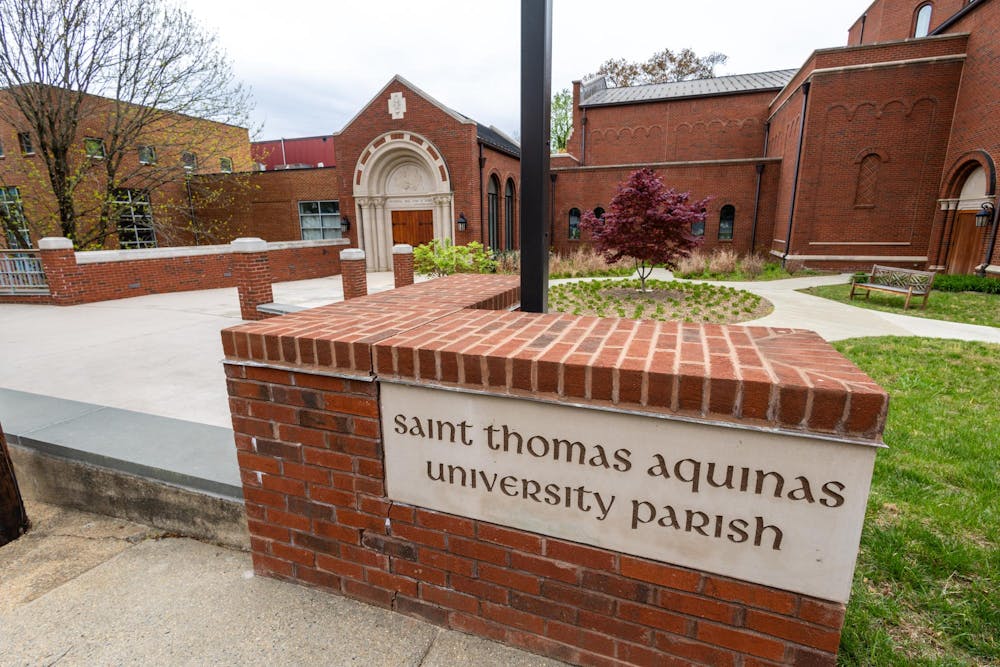Pope Francis, who served as the 266th head of the Catholic Church and leader of over 1.4 billion Catholics around the world from 2013 to 2025, died April 21. At the University, students shared a range of perspectives on his legacy which is marked by institutional reform, inclusivity and a relentless focus on the poor.
Francis became a global figure due in large part to his aims at reforming the church. During his papacy, he appointed more women to senior roles and he emphasized accountability and transparency during ongoing sexual abuse scandals. He also worked to promote financial transparency in the papacy.
Pope Francis was a relatively modest pope, choosing to live in a guesthouse in Vatican City as opposed to the traditional papal apartments in the Apolstolic Palace. He also rode in a Ford Focus as opposed to a luxury vehicle like his predecessors.
Ahead of his death, Francis had suffered from health issues including pneumonia as well as high blood pressure and diabetes.
Anna Jones, chair of the Catholic Hoos Social Committee and third-year College student, described her surprise at Francis' death after he seemed to be recovering from health complications. She also discussed the pope’s core values and his empathy for others.
“Waking up [that] morning and hearing that Pope Francis had passed away was very shocking,” Jones said. “Pope Francis leaves us with a legacy of hope … Not only did he preach of showing kindness, mercy and service to all, but he also did those very things, especially to the poor and suffering.”
Francis established a ‘World Day of the Poor,’ in 2016, and hosted a lunch for 1,300 homeless and poor people in November 2023, when the Catholic Church observes the occasion.
Jack Vista, chair of the Catholic Hoos Communications Committee and second-year College student also said the news of Pope Francis’ passing came as a surprise, especially following the pope’s appearance during Easter celebrations. Vista noted that many, including himself, believed Francis was improving in health.
“I think the fact that he came out on [Easter] Sunday, despite his poor health and the pain he must have been in, really highlights his legacy,” Vista said. “I hope the Church remembers his legacy of love and servant leadership as we enter a new papacy and new era.”
Francis was born Jorge Mario Bergoglio in Buenos Aires, Argentina in 1936 to Italian immigrants. He served as a Jesuit priest and Archbishop of Buenos Aires before being named to the College of Cardinals who are charged to elect future popes by then Pope John Paul II in 2001. He was later elected pope in the 2013 Papal Conclave after the resignation of Pope Benedict XVI.
According to the Vatican, Francis suffered a cerebral stroke and passed away April 21, prompting statements from global leaders, religious institutions and communities around the world.
First-year College student Grant Supancich — who noted that he is not Catholic himself — also reflected on Pope Francis’ legacy, describing him as a principled leader who prioritized compassion for the poor and marginalized.
“I am not Catholic, but to me Pope Francis was a good man who stood for what he believed in,” Supancich said. “He cared immensely about the poor and suffering around the world and brought attention to them … It is unfortunate he is no longer with us, but he lived his life on Earth the right way.”
His papal name, Francis, was a first for any pope, chosen in honor of Saint Francis of Assisi, who was known for his humility, life of poverty and care for the poor, which Francis championed during his papacy. He advocated for increased dignity of immigrants and refugees, an increased role of women in the Church and global peace and disarmament, among other issues.
Dalton Haydel, president of Catholic Hoos and second-year College student, discussed how Francis could not be labeled a liberal or conservative relative to American politics, and instead provided guidance to the global Catholic community.
“We must remember that he was not merely a figure within American political debates — he was the Holy Father of the universal Church, spread throughout the world, representing every nation, language and culture,” Haydel said.
Francis was at times criticized by the left and right for his moves that were less conservative but not exactly progressive, an example of how the religious leader was placed into an American political context.
Haydel said that it was Francis’ work that has helped reignite values of unconditional love and mercy within the Church. According to Haydel, Francis recognized the Church’s universality and stood as a bridge between peoples during an era that he believes has grown more hostile to religion.
During his papacy, Francis also decreased the influence of European cardinals and appointed numerous cardinals from Asia and Africa who will now have a much larger say in who the next pope will be than in previous years.
Haydel highlighted that Francis invited all people into communion and preached that there was a place for them in the Church no matter who they were, noting that the late pope would often say, “The Church is not a museum for saints, but a hospital for sinners.”
Francis did not directly invite all to communion, but had other welcoming attitudes toward non-Catholics in the church.
Vista also said he hopes future Church leadership continues to embrace the values Francis championed. He described the pope’s final public appearance as a powerful symbol of resilience and commitment.
The Papal Conclave, which assembled the 133 cardinals under the age of 80, took place May in Vatican City inside the Sistine Chapel to choose the next successor of Saint Peter. Thursday, the Conclave named Robert Francis Prevost the 276th pope, who becomes the first pope from the United States.







